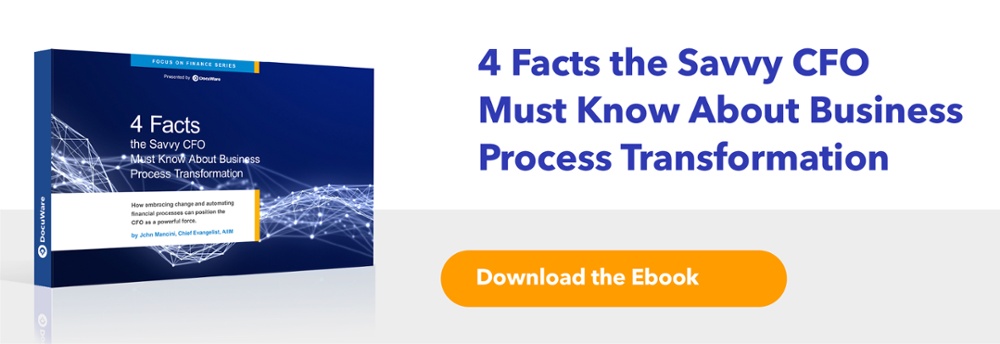I recently came across an interesting framework developed by Deloitte called the Four Faces of the CFO. It struck me that these four roles – steward, operator, strategist and catalyst -- are directly relevant to the content and document management challenges facing organizations. Let’s explore:
Steward
“CFOs work to protect the vital assets of the company, ensure compliance with financial regulations, close the books correctly, and communicate value and risk issues to investors and boards.”
Organizations are increasingly focused not only on the potential value of controlling documents and processes, but also on the exponential risks from managing increasing volumes of information.
There is pragmatic, even-handed stewardship required here. The everyday compliance and regulatory concerns associated with information assets bring the CFO squarely in IT conversations and strategy.
Operator
“CFOs have to operate an efficient and effective finance organization providing a variety of services to the business such as financial planning and analysis, treasury, tax, and other finance operations.”
Despite document management technologies at the core of financial process automation existing for a decade, there are huge variations in how these technologies are deployed, used and measured.
If done well, successful implementation and leveraging of document management and office automation software can deliver extraordinary value to the CFO in his Operator role: efficiency, effectiveness, operational excellency.
Strategist
“CFOs take a seat at the strategy planning table and help influence the future direction of the company.”
For many CFOs, the demand for financial process transformation represents an enormous opportunity. This is an opportunity to not only dramatically improve operations and reduce costs (a traditional role for the CFO), but to also leverage this experience to become the hub for digital business process transformation initiatives throughout the organization.
In other words, embracing change and automating financial processes can create long-term benefits for both the CFO and the organization. It can position the CFO as a powerful force in the broader drive toward digital transformation.
Catalyst
“CFOs can stimulate and drive the timely execution of change in the finance function or the enterprise.”
The information and documents created by and surrounding financial processes are used across countless other processes and departments, including sales, legal and customer service.
The implications of this are two-fold:
- It explains why financial process transformation is an important and growing impact multiplier throughout the organization
- It establishes finance and CFOs as first-moving leaders in automating and transforming other departments
Finance is the glue – in both a good and bad sense! – that either connects or confounds the rest of the organization.
All Together
Document management and office automation are key to fulfilling expectations in these four roles. From the practical cost-savings of efficiency to the profit-driving projects of effective innovation, the right tools can enable the CFO to thrive in all four faces of steward, operator, strategist and catalyst.



